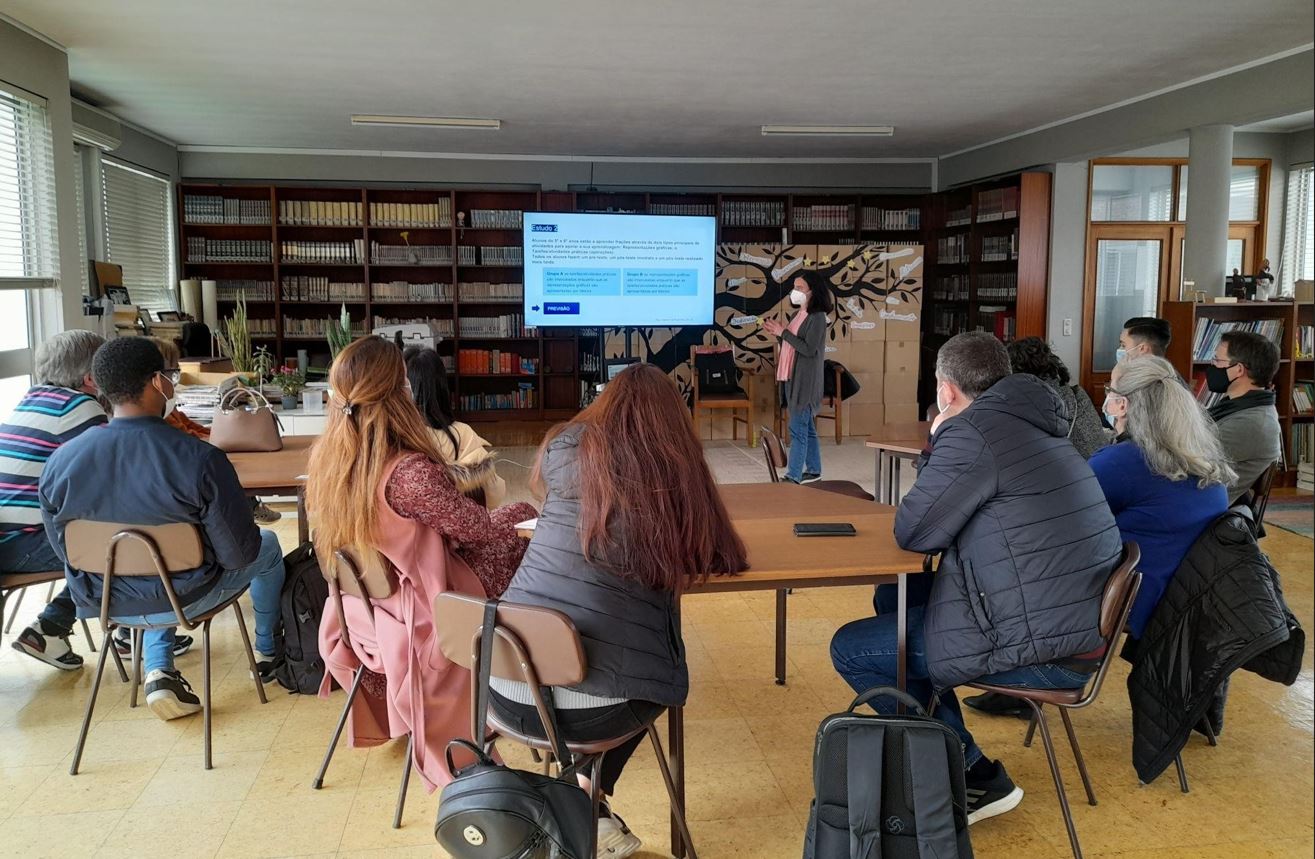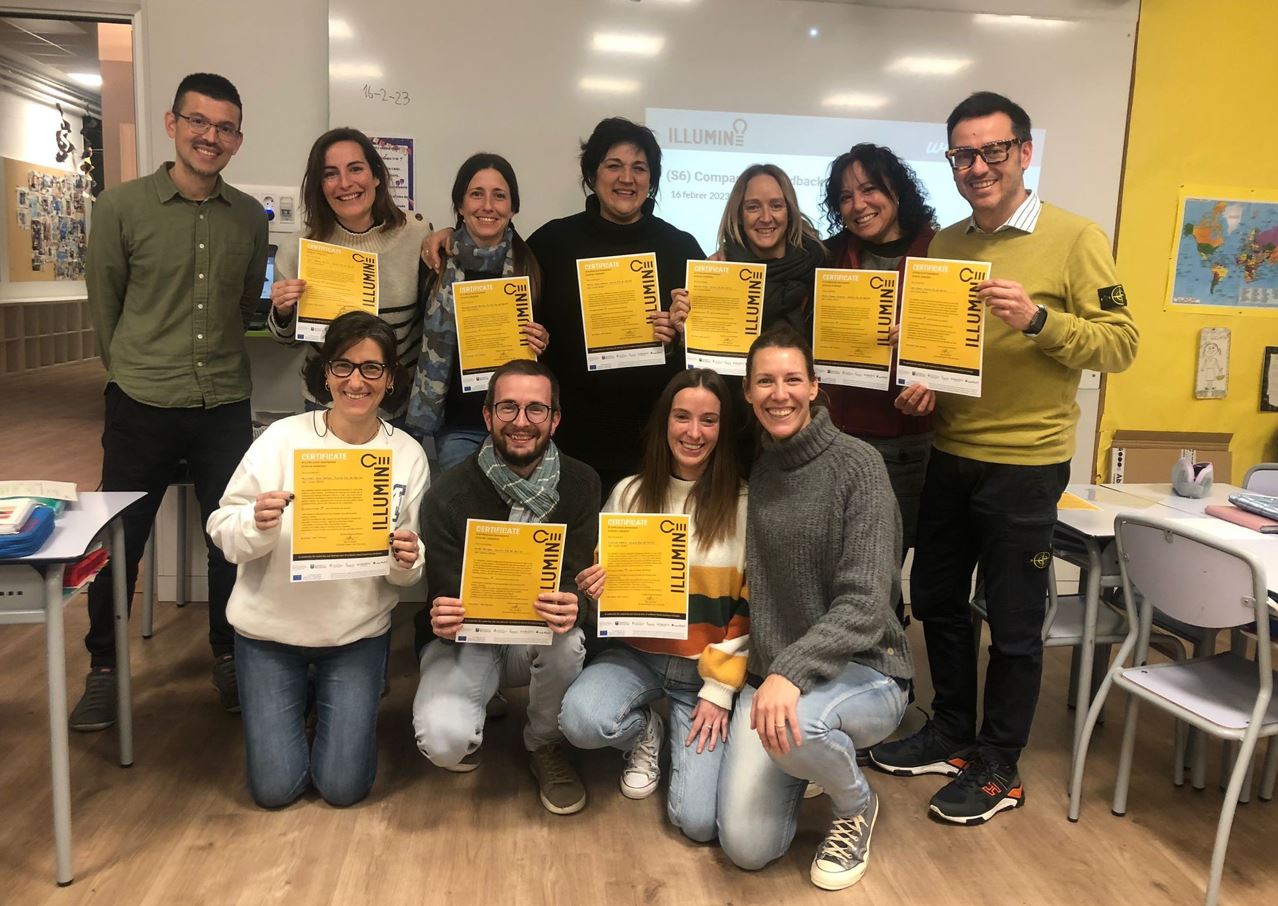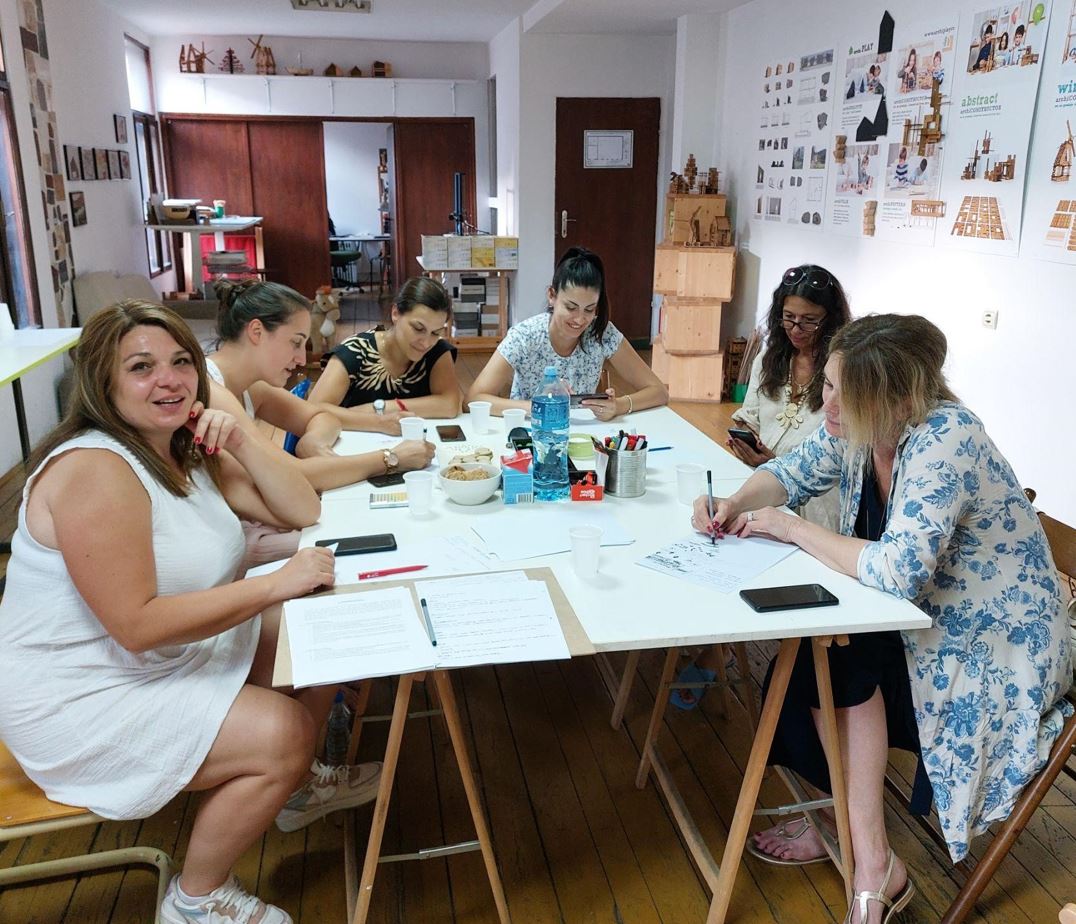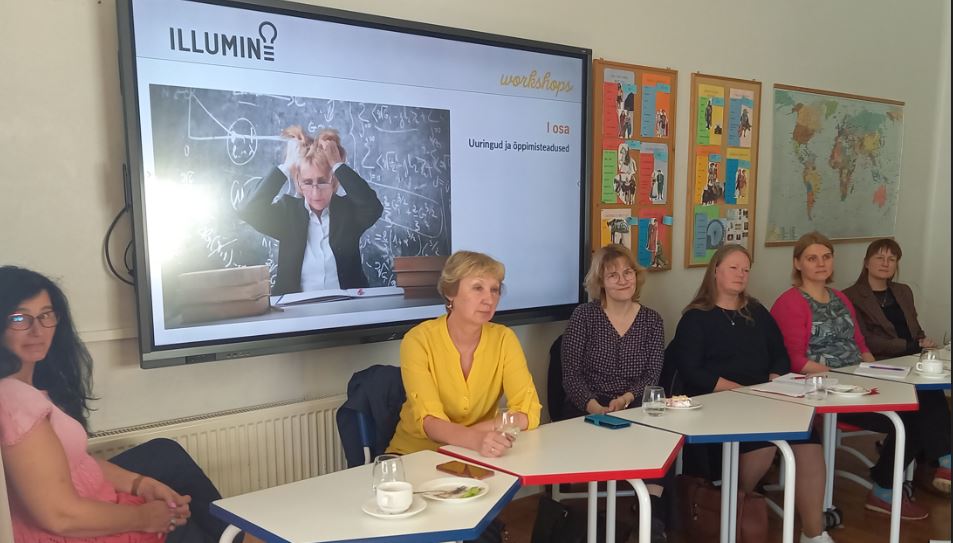A European project, coordinated by UPF, promotes the incorporation by education of more effective methods to learn based on scientific evidence
A European project, coordinated by UPF, promotes the incorporation by education of more effective methods to learn based on scientific evidence
The European project, Illumine, coordinated by UPF, has created innovative tools to promote so-called evidence-based education, grounded on scientific studies into which teaching methods are most efficient for learning. Some one hundred teachers from Spain, Portugal, Estonia and Serbia participated in the Illumine pilot test, during which they took a course on teaching strategies that use this approach and put them into practice through lessons targeting a total of 3,500 students.

How to improve the educational system to adapt insofar as possible to the needs of students and improve their learning capacity? So-called evidence-based education deals precisely with this issue and, fundamentally, proposes to do so based on scientific reports and studies that demonstrate the benefits of a given teaching or learning system and how the human brain learns. From this standpoint, the European project, Illumine, coordinated by UPF and funded by the EU’s Erasmus+ programme, has been researching into and creating innovative tools to improve educational models.
At UPF, this project has been coordinated by the Research Group of Interactive and Distributed Technologies for Education (TIDE) of the Department of Information and Communication Technologies (DTIC). The two-and-a-half-year project ended last July and its results have been released this September.
The project has created a toolkit, which includes a handbook and materials to implement a professional development course whereby teachers can incorporate more efficient educational strategies according to scientific evidence. In addition, technology has been generated to support the design and sharing of resources on the subject.

Marc Beardsley, Illumine coordinator (TIDE research group, UPF): “These resources can help more teachers to become active agents for evidence-based education”
Some one hundred teachers from four European states (Spain, Portugal, Estonia and Serbia) took part in a pilot test of the course. In addition, they took 35 lessons to test the strategies learned during the course, which directly impacted 3,500 students. Moreover, more than 220 educators have participated in Illumine’s teaching symposia in Spain (Barcelona), Portugal (Amarante and Viana do Castelo), Serbia (Novi Pazar), and Estonia (Tallinn). In addition to school teachers, Illumine has involved designers, social enterprises and researchers in psychology, pedagogy and educational technology. The project has also yielded the publication of nine articles in scientific journals.
“The diversity of project partners, related to pedagogy, psychology, educational technology, design and teaching in schools, has helped us to produce not only rich but also practical resources. These resources can help more teachers to become active agents for evidence-based education”, assures Marc Beardsley, coordinator of Illumine and member of UPF’s TIDE research group.

The innovative tools created by the Illumine project
The toolkit: includes a handbook and materials to run Illumine’s 20-hour teacher professional development course. The course presents evidence-based teaching strategies, such as distributed practice (or spacing out training sessions over time), retrieval practice (retrieving prior learning to apply it in another way), spaced learning (by repeating knowledge acquired over time), and cognitive reframing. It also guides teachers on how to put them into practice through research lessons. These lessons are based on the team-based learning design approach, which fundamentally favours a proactive role by students in small groups.
Digital handbook of teaching practices: presents educators with evidence-based teaching strategies, as well as case studies on their use by teachers; digital technologies that can be used to implement them; and relevant scientific publications on the subject, among other aspects. The handbook is available on the Illumine project website in English, Spanish, Portuguese, Estonian and Serbian.
Training videos: the project includes the Illumine YouTube channel, which includes videos on a wide variety of topics, such as reports of case studies by teachers in which they describe their research lessons and their students’ reactions; and other multilingual ones that can be used to teach students how to deal with stress. A series of posters on this matter have also been designed for display in the classroom.
Research lessons platform: digital technology developed by the project provides an online space for teachers to learn about evidence-based strategies, practice their use by creating research lessons, and share experiences. The theoretical content of the project (toolkit, digital handbook and videos) as well as various templates (to design research, generate research lessons, etc.) are also available on the platform.

New project on how teachers can help students deal with stress
In the wake of Illumine, the TIDE research group has begun to coordinate another Erasmus+ research project, also based on the professional development of team-learning design. The project RemixED will guide teachers on how to help students learn to handle stress.
Scientific articles/communications by the UPF researchers of the illumine project:
Beardsley, M., Hernández-Leo, D. and Sánchez-Reina, R. (2023, December). Using Learning Design Technologies for Teachers’ Practice-Driven Research. At: 31st International Conference on Computers in Education. Asia-Pacific Society for Computers in Education.
Beardsley, M., Albó, L. and Hernández-Leo, D. (2023, August). A Teacher Professional Development Tool for Creating and Sharing Research Lessons on Evidence-Based Teaching Strategies. At: European Conference on Technology Enhanced Learning (pp. 686-691). Cham: Springer Nature Switzerland. Available at: https://link.springer.com/chapter/10.1007/978-3-031-42682-7_62
Beardsley, M. and & Albó, L. (2022). Teacher Motivation Toward Professional Development Following Emergency Remote Teaching Experiences. At: Proceedings of the 15th International Conference on Computer-Supported Collaborative Learning-CSCL 2022, pp. 561-562. International Society of the Learning Sciences.
Further information on articles/communications from the Illumine project at:
https://illumine.upf.edu/pg/lds/about_illumine/top_news-1
